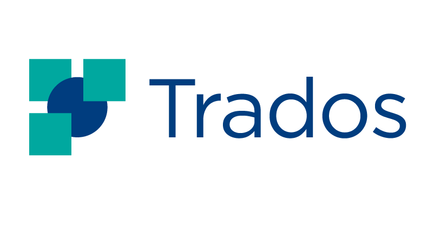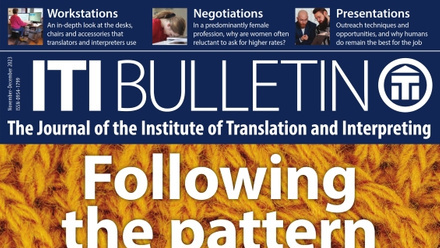Setting up for the future
Hannah Howe and Megan Stockwell both finished their MAs in translation in 2021 and undertook ITI’s Setting Up as a Freelance Translator course soon afterwards. Here they give their insights into the course and share what they learnt from the wide-ranging series of modules and the expert tutors.
Back in September 2021, I had just completed my MA in Translation at the University of Surrey, with the date for my dissertation submission falling in the week just before the start of the 10-week SUFT course. For me, this timing was ideal, and enrolling on this course proved to be the best possible way to kick-start my freelance translation career.
After the initial relief and celebrations, I was facing the significant and rather daunting question of ‘Now what?’. The MA had equipped me with a solid understanding of the wider translation and localisation sector as well as competence in using CAT tools. I knew I wanted to go for it as a freelance translator, and I felt more than ready to hit the ground running in terms of my translation service offering. However, I was apprehensive about becoming a self-employed business owner for the first time, while simultaneously navigating my way into a new industry following a career change. I hoped that the ITI SUFT course would hold the answers I needed as well as help me to bridge the gap between student and professional, so I applied to join the SUFT autumn cohort.
The right decision? Absolutely. The SUFT course was structured in a way that enabled me to systematically collate the tools, knowledge and confidence I needed to get started as a freelance translator. Each week, the course content was delivered in manageable blocks which continuously built upon the previous units, resulting in a step-by-step path to becoming a successful freelancer.
The dual format of the pre-recorded presentations and live-discussion sessions, as well as the option to catch up afterwards as necessary, provided flexibility around other commitments. Overall, the time investment was perhaps greater than I had anticipated, but that was only a positive as it meant I was getting even more out of the experience.
A practical focus covering a lot of ground
We covered so much ground in a relatively short time: how to pinpoint our own strengths and weaknesses; how to market our services; how to gain experience and find clients; how to define our brand, services and rates; and how to forge successful working relationships with LSPs. There was also a big focus on the practicalities of running your own business, which I found particularly useful, including the tips on accounting, vetting prospective clients, getting paid on time and equipping a home office.
The weekly assignments meant that there was simply no room for procrastination: we not only learnt about what we needed to do, but were then also given the task of actually doing it. This approach gave me the focus I needed to tick off key tasks and make decisions regarding my new business. During the course I defined my brand name and logo, decided on my areas of specialisation, set myself CPD and networking goals, rewrote my CV and gave my LinkedIn profile a much-needed overhaul. As someone who loves nothing more than ticking an item off a list, this gave me a brilliant sense of achievement and progress.
Before this, I had not considered that my previous career in global event management constituted an obvious area for potential specialisation. The SUFT tutors helped me to see that I did in fact have relevant transferable skills and specialist subject knowledge that together form a strong set of translation specialisations, drawing on both my experience and passions.
The enthusiasm, encouragement and personalised constructive feedback from all the SUFT tutors was an invaluable element of the course. It was a privilege to learn from experienced practising translators, and hearing their success stories was incredibly inspiring. This ties in with another key takeaway for me, which was the value and importance of networking in the translation industry – something that was truly embodied by the SUFT course. I have forged lasting connections with both my fellow students and the tutors, and I already feel the benefits of having a trusted network of colleagues around me.
In summary, the SUFT course was everything I expected and more. Not only did I come away with the building blocks I needed to embark on my freelance translation career with optimism and purpose, but I also made significant inroads into the establishment of my business objectives and professional goals. Getting started is one thing, but getting started in the right way is another thing entirely. Thanks to SUFT, I feel that I have given my fledgling business the best chance of success.
Hannah Howe
An opportunity to jump at
Information about the SUFT course arrived in an email from ITI at just the right time for me. My MA was drawing to an end, and I was feeling well and truly qualified as a translator and interpreter, but still wary about making the move from academia to the ‘real world’. Unsurprisingly, I jumped at the chance to continue learning and to gain experience from such a range of successful practising translators.
If I had to sum up my experience of the tutors and their presentations in three words, I would say ‘approachable’, ‘reassuring’ and ‘enthusiastic’. Each tutor comes from a different background in terms of how they began their own freelance journey and the direction they have since taken in the translation world. Consequently, they were each well placed to pass on a range of thought-provoking advice and anecdotes. Each tutor also made themselves readily available to us – making it clear they were open to answering all our questions, and demonstrating passion for their company, their job, and this industry as a whole.
A wide range to choose from, with new topics
With this in mind, it is very difficult to simply pick a single favourite element from the course, because each module was so varied. However, for me, numbers are by no means my strong point, so the modules covering ‘working from home’ and ‘valuing yourself’ proved particularly useful when it came to creating budgets and rates, and generating quotes and invoices.
In addition, the modules on ‘choosing specialisations’ and ‘getting paid on time’ made us aware of aspects of the industry that would doubtless never have crossed our minds had we not attended this course. For example, I had previously never considered choosing translation specialisations, and I can also honestly say I was unaware of the majority of the resources available for checking potential clients’ credentials before accepting a job.
Although my SUFT classmates also came from different backgrounds and experiences, I personally found all course content to be highly relevant to our professional objectives. While certain aspects were repeated from my master’s course, for me, repetitions felt reassuring rather than irrelevant because they were spoken about by a variety of practising translators.
I also feel that all the subjects we covered in the course were highly appropriate to starting out on this freelance journey. For instance, we applied business tools to evaluate our strengths and check we had the right equipment to start up effectively. We also received useful and practical marketing and networking advice for getting our skills and services noticed, and we learnt how to make our names stand out from the crowd. Furthermore, we investigated effective methods for contacting and working with clients, and discovered how to tailor our CPD to reflect our skills and interests.
In addition, the materials provided for each module prove useful to this day. I know I will be using the self-calculating spreadsheets that we worked on during the course, to create quotes and calculate rates, for a long time to come! Each module also came with an accompanying PowerPoint presentation written by the tutor. These continue to serve me in the months after finishing the course. They provide clear summaries and act as useful additions to my own notes as I apply what I have learnt to my working life.
Overall, this course has been eye-opening, and I could not recommend it enough. We have been introduced to a wealth of experienced, kind individuals, who have welcomed us new arrivals into the ITI fold with open arms. This course built on the knowledge and skills I had acquired during my MA and allowed me to explore new avenues too.
I now feel as ready as I’ll ever be to take the first steps on my full-time freelancing adventure, and I am excited about the journey!
Megan Stockwell
This article first appeared in the March/April 2022 edition of ITI Bulletin.
How do I apply?
The SUFT course is on hold at the moment. Sign up to the waiting list below and we'll let you know when registration opens.






